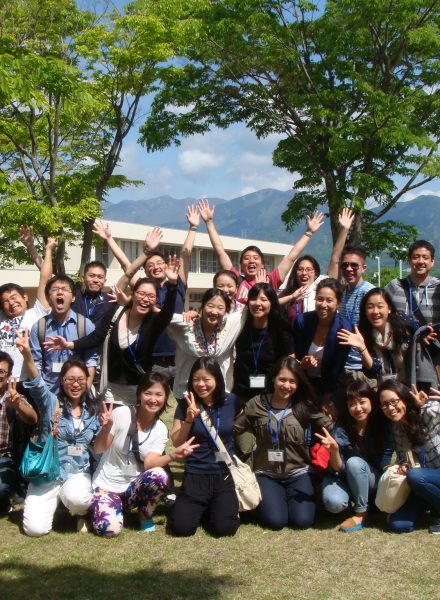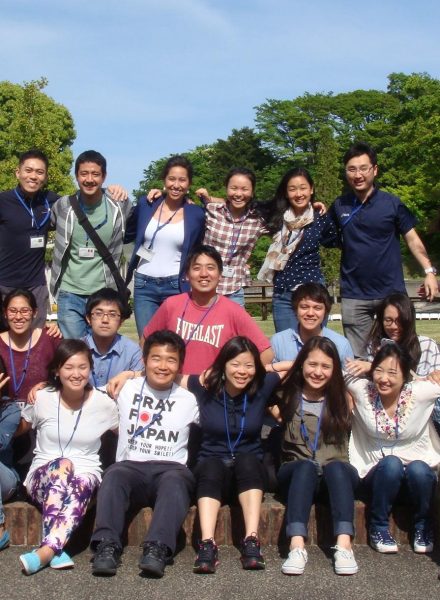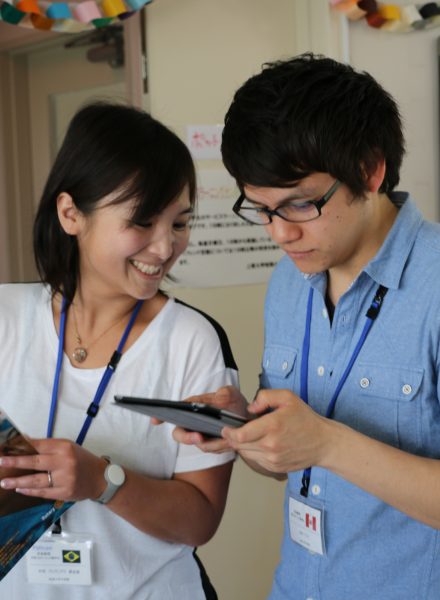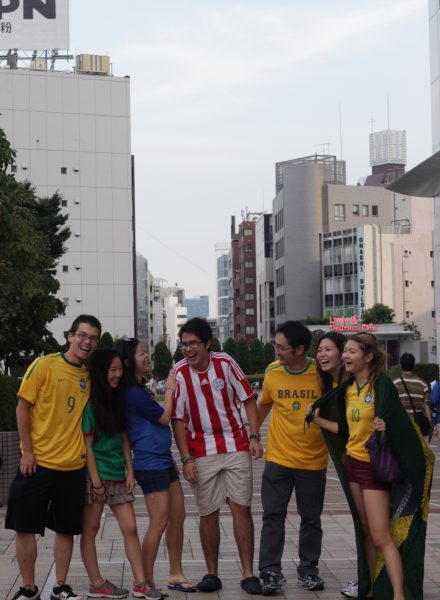Uchima Koecklin Karin Harumi
Peru
Lives of the Nikkei scholarship ‘Dream Come True Project’ students~Uchima Koecklin Karin Harumi
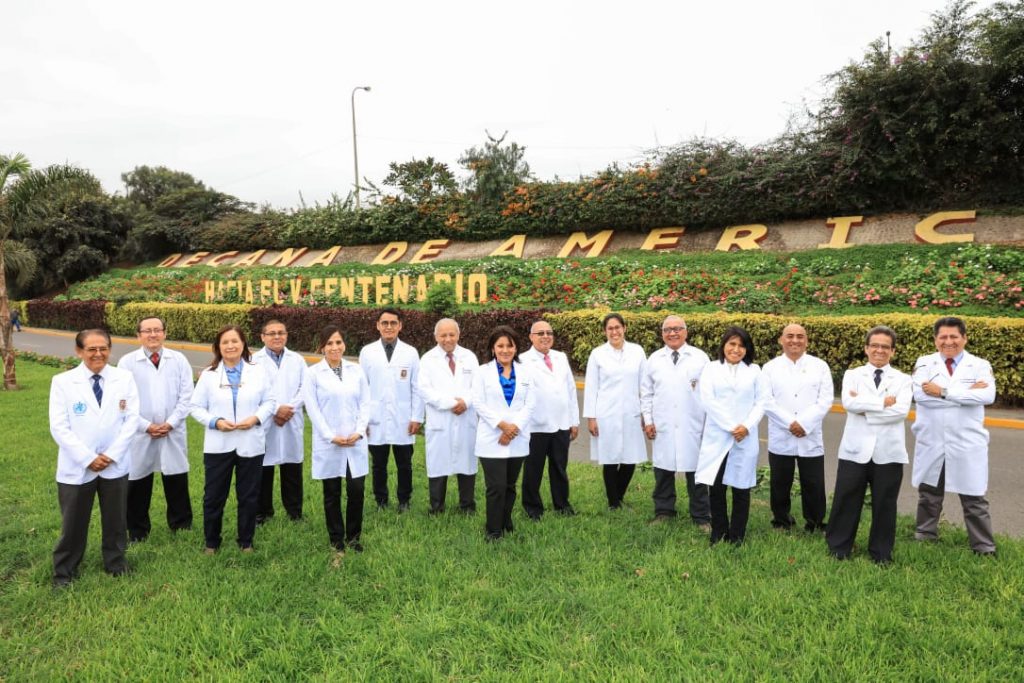
Profesores de grupo de investigación, Facultad de Odontología, Universidad Nacional Mayor de San Marcos
Professors of the research group, Faculty of Dentistry, National University of San Marcos
Why did you decide to study in Japan?
In Peru, much remains to improve oral health. I wanted to specialize in my area (orthodontics) and obtain a PhD to be a teacher in my university and improve oral health in Peru. Japan has several technological advances, materials and techniques in my career. In addition, it allows high-level research with which you can publish internationally and contribute to the knowledge in dentistry. Having the opportunity to study a postgraduation is very important, because it is the current trend in my career, and to be able to study in advanced countries, where you can learn things very different from those that can be learned in Peru. The opportunities of being able to carry out great research that can contribute knowledge in the career can be achieved in Japan, so I considered that the learning was going to be greater. In Peru there are not many PhDs, so I knew that if I studied a lot, it was going to be good for my university in Peru. Also, I wanted to have the opportunity to live in Japan and learn a little more about their culture and values in order to expand my vision.
How was your life in Japan?
Japan has a culture, customs, values and lifestyle very different than Peru. At first it was difficult to adapt not only for the language or being alone in another country, but also because of the way of working and communicate with the Japanese is very different. Being able to understand the interaction with the Japanese was difficult because it is very different and the way they express themselves is the opposite of the Latinamerican, where the expression is more direct, which can cause a great difficulty of adaptation. Also at the beginning there was a bit of difficulty in seeing patients in the university. However, little by little, I was able to make progress in both clinical training and research. In Japan, values and behaviors are well marked, and above all, order, respect and responsibility are the most notorious aspects that make one live quietly and learn a lot in Japan. Once I adapted and got used to the university, I learned a lot not only for my professional formation but also for my personal character, trying to take the best out of my university environment. In all this process of adaptation and coexistence, having the whole family of NFSA was very important, and I can say that my best friends and my support that I had in Japan are from NFSA. The opportunity not only to share with them, but also to have to prepare and participate in the kenshus and all the activities of the scholarship taught me many things and they brought me closer to the group, making my life in Japan much better.
Tell us about your past study or research.
I did my research in the area of orthodontics, with an animal study. My experiment was about the influence of nasal obstruction on the musculature of the tongue. I evaluated the characteristics of the muscles, their function, physiology and histology after changes in the breathing pattern due to nasal obstruction. This topic is important because changes in the musculature of the mouth affect the position of the teeth, as well as the functions of chewing, speech, breathing, swallowing, etc. The experiment focused on the growth stage, which is where respiratory problems usually start, where muscle changes aggravate problems in the proper development of facial structures, causing the oral problems that the patients later present. This type of patients with respiratory problems usually has dental problems, so it is important to know more about these changes. This breathing problem is very common in my city Lima due to the type of weather, so that studying these respiratory problems is of great interest.
Did your consciousness as a Nikkei change in any way through studying in Japan?
I studied in a Nikkei school in Peru, and my relationship with the Nikkei always helped me to have an identity as such. In my case, I have also a Peruvian family for my mother, and having grown up in Peru, I had several influences. When I arrived to live in Japan for so long, I could see more closely the Japanese society, and everything related to it, being able to identify more with the Japanese culture. In my university I was able to share a lot with Japanese, since there were few foreigners, so I could learn much more about Japanese society and understand more about the basis of being Nikkei. Besides being able to share with Nikkei from other countries made me see that we have many things in common, that especially those that grew up in Latin America, despite having their own customs of each country, we had many things in common as Latinos and as Nikkei. This helped me to understand more how our relationship with Japan and our identity as Nikkei is very strong. And above all, to see that we have similar values and customs, growing my identity.
Tell us about your plan after graduation.
I currently work as a professor in the faculty of dentistry of my University where I studied in Peru. I am teaching in postgraduate programs, in the master’s and doctoral programs in dentistry, and in the specialty of orthodontics. I am dedicated to teach about the development of research projects in general dentistry in masters and doctorates. In the postgraduate orthodontics I am helping in clinical training courses. Because in Peru there is still not much research, I currently see dental research in general, unlike Japan where I only saw research in my specific area. The approach I’m doing here is a bit different, but it’s because we’re just beginning to give importance to research in Peru. At the university we do dental research work in general, which is why I am supporting a research group. Currently, the topic that we develop is the study of the skull morphology of ancient civilizations of Peru. In addition to the university, I am working as a general dentist and orthodontist.
Please give a message to students who are considering studying in Japan.
Japan is a country with a lifestyle, customs, and culture very different especially for Latinos. Being able to live in a different reality and far from home can be hard at the beginning, especially if you have difficulties with the language. In addition, being a different society, relations and interactions with the Japanese can be difficult at the beginning, especially if you do not know what the culture is like. Because of that, it is very important to have friendships with which you can share the problems and learn from them about the experience in Japan. For me it is very important to have a group like NFSA, because being students with similar cultures, we usually have similar problems, so sharing with them helps a lot to get used to and be able to lead your life in Japan. For those who don’t know the language, I suggest that you try to make an effort to at least know the basics, which will help a lot in your daily life. Also, take advantage of all the opportunities you may have to learn and have new experiences inside and outside university life. It is a good stage and a unique opportunity to learn many things and to be able to expand the vision and grow professionally and as a person.
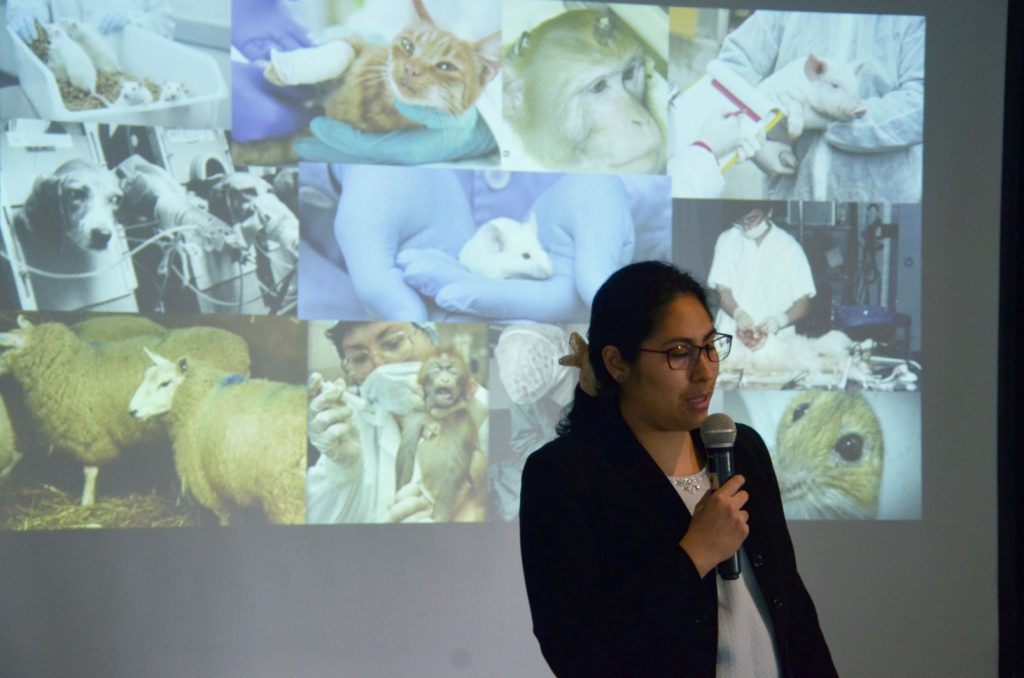
Curso de investigación, dictado en la Facultad de Odontología, Universidad Nacional Mayor de San Marcos
Research course, given at the Faculty of Dentistry, National University of San Marcos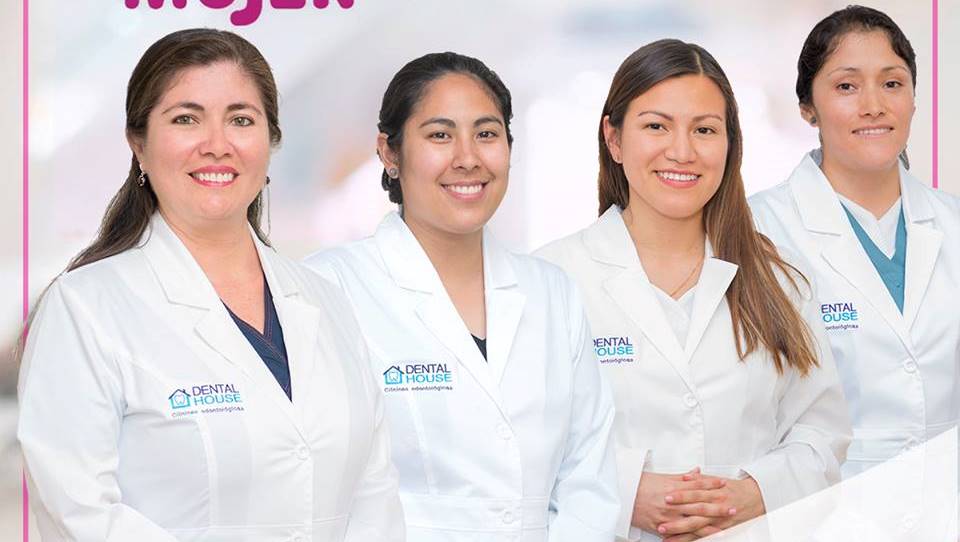
Trabajo en clínica dental
Work at dental clinic

